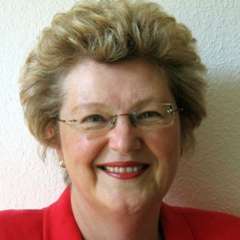Barrie Kosky, former artistic director of the Komische Oper, has brought Handel's oratorios to new life in the past few seasons. After Semele and Saul, he now stages Hercules, a co-production with Frankfurt Opera where it premiered last year. Any oratorio by George Frideric Handel is easily recognisable because of the music: full-bodied and mostly upbeat, even if the libretto deals with serious themes. This is certainly true of Hercules, composed in 1745. The text is based on the tragedies The Trachiniae by Sophocles and Hercules Oetaeus by Seneca, adapted by Thomas Broughton. The story focuses on the last days of the mythical hero Hercules and the tragic events that take place after his return from carrying out his famous twelve labours.
Hercules has been travelling for years and no one knows whether he is still alive or not. He returns, much to the joy of his wife Dejanira, son Hyllus and the entire population of Trachis. This joyful reunion is overshadowed by Dejanira’s jealousy towards the young and beautiful princess Iole, a prisoner of war brought back by Hercules, who killed her father. Dejanira's jealousy deepens and she decides to give Hercules a shirt soaked in the blood of the centaur Nessus in the belief that it will renew their love. She does not know that the blood is poisonous and will lead to death. Too late, Dejanira realises the tragic consequences of her actions. Hercules, in agonising pain, prepares for his death and orders a funeral pyre to be built upon which he will burn. Jupiter sends his priest Chorsoli to inform the bereft mortals that Hercules will be accepted among the gods and orders his son Hyllus to marry princess Iole, thus redeeming the past.
Designer Katrin Lea Tag offers a sparse, bright stage in cold, stark lighting with a statue of a seated Hercules on a violet-coloured sofa in the first act and a statue of Hercules standing in Act 2. Otherwise the stage is empty. The characters wear modern day clothes, accentuating the timelessness of the emotions expressed by Handel's music. Was it the dimensions of the wide stage that made Kosky use the technique of his characters running on stage and slapping the walls as a vehicle for dramatic expression? This only contributed to the characters becoming caricatures in their stereotypical hand-wringing and sighing, an effect so overused it became ineffective.
Irish mezzo-soprano Paula Murrihy nailed the role of Dejanira with an emotionally charged timbre that expressed this rather one-dimensional role. Is it all-consuming jealousy, is it madness? Her portrayal of this long-suffering wife was overwhelming. Her Hercules, American bass-baritone Brandon Cedel, was perfectly cast, with sheer vocal power, especially impressive in the last scene where Hercules pleads for death to end his agony. Tenor Caspar Singh gave a stylistically flawless portrayal as an intrinsically shy son of strong-willed parents. Greek lyric soprano Penny Sofroniadou was Iole, the most interesting role in this oratorio: her father murdered, she a prisoner in a strange new environment, adored by the ruler’s son, hated by the ruler’s mother. Sofroniadou was utterly convincing in the vocal and dramatical embodiment of this role. Susan Zarrabi, with her pleasantly timbred, but not overly powerful mezzo, remained too pale as Lichas, Hercules’ sister and confidante of Dejanira.
The chorus of the Komische Oper excelled, not only in their vocal prowess and expression but also their dramatic impact which was overwhelming. Kosky gave the chorus vivid personality and vitality, especially in the scene where they embody Dejanira’s jealous horrors.
The music of Hercules is characterised by its emotional depth and complex characterisation, with accents brought out by soloist instruments and continuo. It is a work that addresses both human weaknesses and the search for virtue and redemption. Baroque specialist David Bates succeeded in bringing out the highlights of the score to great effect, sometimes indulging in fairly broad tempi through which he was not always able to maintain tension throughout. Maybe due to the pit being brought up fairly high, there was a distinct dullness of sound, especially during the overture, when the show curtain was still down. But the enthusiastic reception showed that Handel’s music, and especially the emotions expressed in his oratorios, are still as relevant today as they were in the 18th century.




